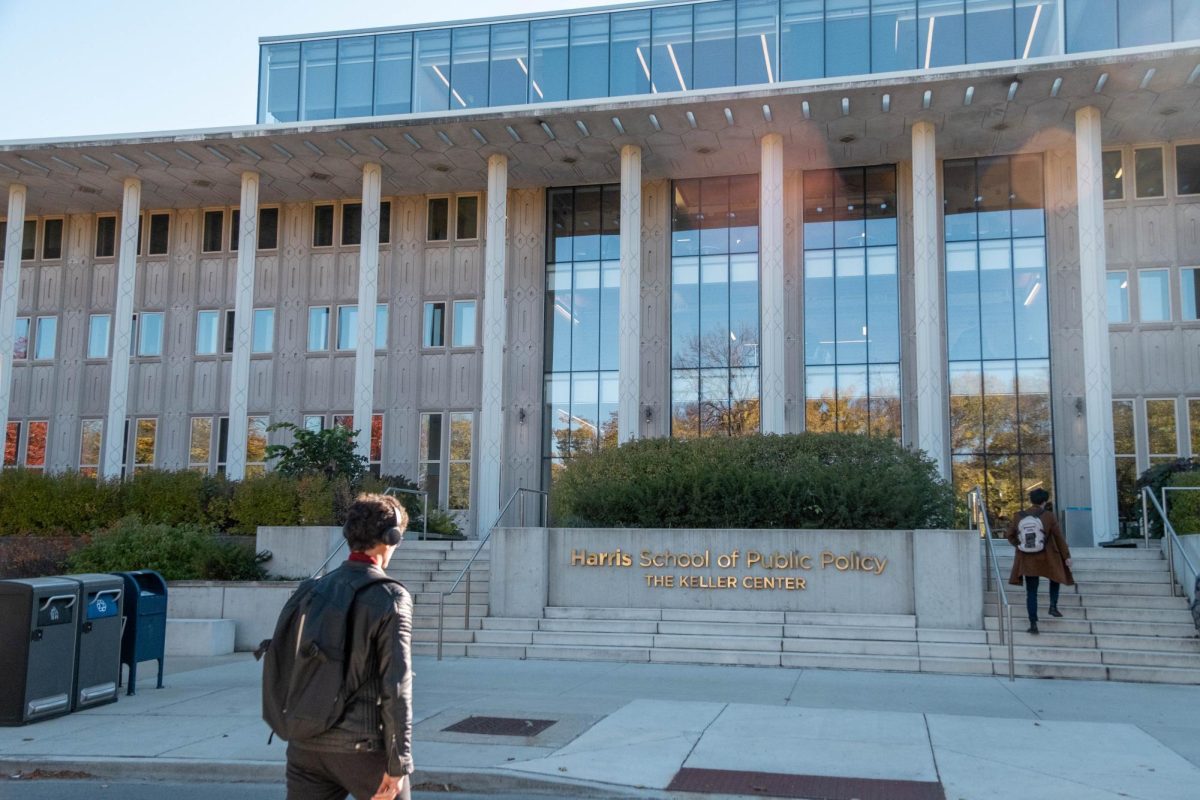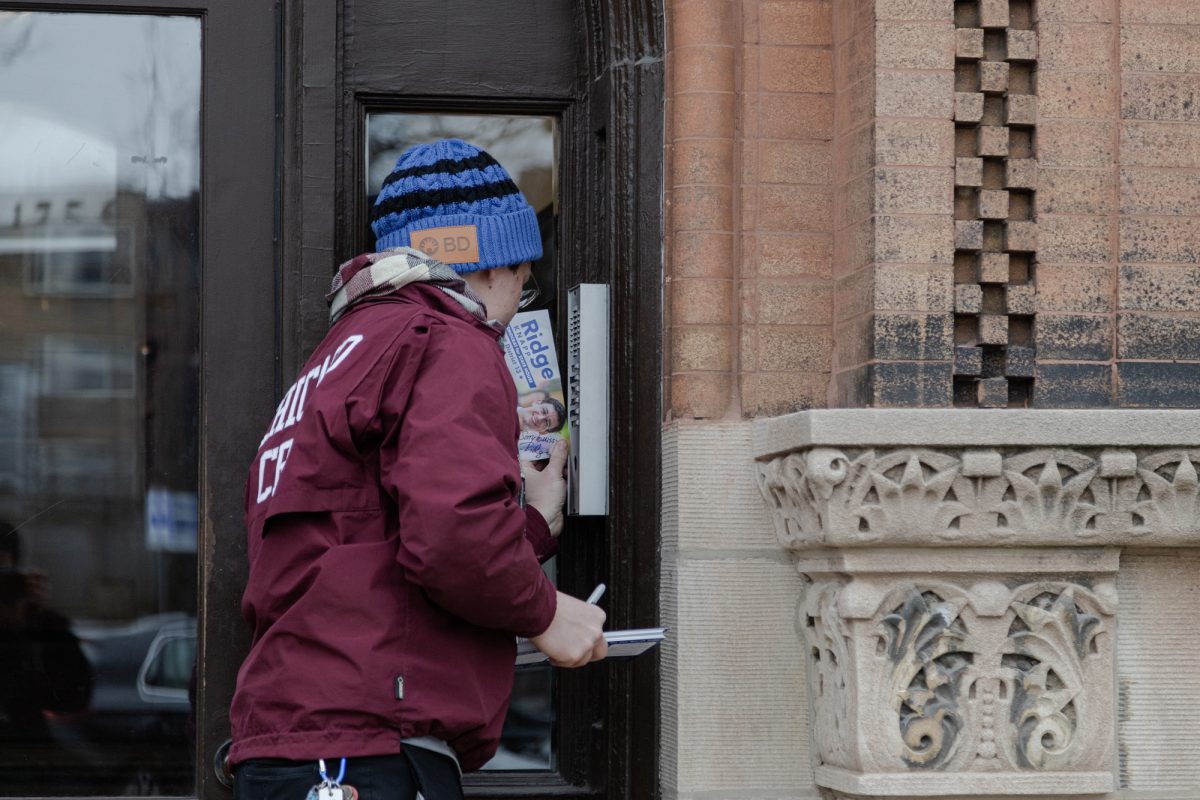Members of the Board of Trustees met over two days last week to discuss matters of concern to the University at the quarterly Board of Trustees meeting. Under the provisions of the University of Chicago Bylaws and Statutes, the 48 members of the Board of Trustees are vested with the management of the University. In a student debriefing of the meeting Friday morning, University President Don Randel provided a rundown of the topics discussed in the various subcommittees.
Campaign Steering Committee
The recent $42 million Comer gift was celebrated in the committee. “We talked about where we stand and where we are going,” Randel said.
Currently, the University of Chicago Hospitals, the Graduate School of Business, and the library system are all on their way to meeting their fundraising goals for the year. Assignments of soliciting prospective gifts, one possibly to be finalized this week, and names of possible donors were also discussed.
Executive Committee
The University’s interest in maintaining management of Argonne National Laboratories seems promising, Randel said, as the anticipated main competitor for the contract appears to be dropping out of the race. Although Randel did not name the competing firm, he said that he met last week with the Secretary of Energy to emphasize that he and the Board are both very committed to the operation of Argonne.
University officials have also met one-on-one with officials from the Department of Energy as well as the current Argonne administration to discuss clarifications and add suggestions to the University’s bid to continuing managing Argonne after the current contract expires in September.
Investments Committee
Peter Stein was recently appointed the new chief investment officer of the University. “The University’s investment portfolio has had very good performance in the last six months,” said Randel.
The Committee also reviewed the University’s current allocation of assets and portfolio in equities, real estate, real assets, and emerging markets.
Audit Committee
The main discussion centered around the University’s response to relevant parts of the Sarbanes-Oxley Act, also known as the Public Company Accounting Reform and Investor Protection Act, which was passed in 2002 in the wake of corporate financial scandals. Although the act is targeted toward for-profit organizations, it could be applied to nonprofit organizations, such as the University, in the near future.
“The University has chosen to adopt some policies of this act,” said Randel. Current plans include implementing a whistle blower hotline for University employees to anonymously report wrongdoings, as well as documenting major components of internal controls.
The Audit Committee is also opposing the IRS on a policy that calls for the University to double-tax its employees. The policy aims to tax social security, which the University pays for its employees in addition to income tax. The University, along with many other institutions, is “looking to settle this case with the IRS but if not settled, we are willing to go to court on this issue,” said Randel.
Development and Alumni Relations Committee
The Committee decided to invest more resources into increasing the size of staff at the Development Office. Recent research shows that regular donors are likely to make large donations if called on to do so.
A report by Ron Schiller, vice president for Development and Alumni Relations, estimates that nearly 40,000 alumni need to be contacted to solicit donation. Increasing the size of the staff at the development office would aid in the effort of raising alumni donations.
“It is expected that the return on this investment will be very good,” said Randel.
Financial Planning Committee
With the increased price of natural gas, the current energy bill for the University is almost $8 million higher than previously expected. The bill for unexpected costs totals to $18 million this year. However, Randel is confident that it will be remedied. The Committee also took a first look at next year’s budget. Currently, no big surprises are in store in terms of salaries or tuition in the University’s budget for next year.
Student and Campus Life Committee
Ben Walsh, a fourth-year in the College and Undergraduate Liason to the University Board of Trustees, made a presentation to the Committee on student life on campus. Walsh was accompanied by Maria Cecire and Nicholas Juravich, both recipients of this year’s Rhodes Scholarship. They spoke with the Committee on how their extracurricular activities in the University community greatly added to their experience at the U of C.
Anne Harrington, graduate student liaison to the University Board of Trustees, expressed concern for the lack of women in academia. Harrington presented the possibility of having more family-friendly University policies such as day care on campus and grants for graduate students who are primary care givers in their families in order to increase the percentage of women researchers on campus.
Campus Planning and Facilities Committee
The topic of discussion for the Committee concentrated on upcoming expansion to take place on campus. Helmur Jahn, of Murphy Jahn Archietects, has been chosen to design the expansion for the Regenstein Library. The Committee also received an update on the pending $500 million project of a new hospital pavilion under the design of acclaimed architect Rafael Viñoly.
Full Board Meeting
The Full Board Meeting is the culmination of the two-day quarterly Board of Trustees meeting. Reports from each Committee were presented and reviewed. The main topic of discussion was the Center for Creative and Performing Arts. After hearing presentations by John Boyer, dean of the College, and Danielle Allen, dean of Humanities, the Board of Trustees showed great enthusiasm and commitment to get the necessary funding for this project.
“This is a lively campus for the arts,” said Randel.
Funding for the arts space has been specially assigned to the Development Office, and conversation towards an initial gift to launch the project has already commenced.








